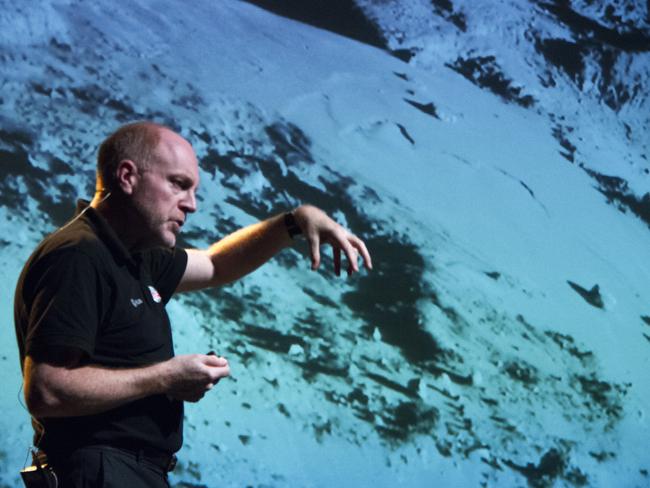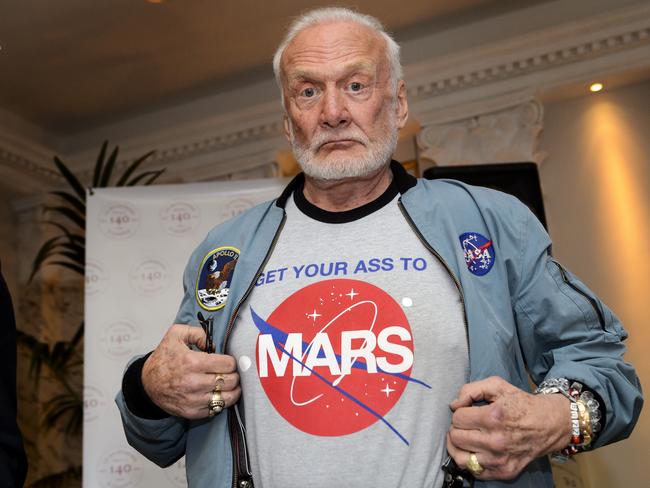Is the risk to human life worth a manned mission to Mars?
MARS is hard. About half the robotic missions sent there so far have failed. So is the risk to human life worth a manned mission?
MARS is hard. About half the robotic missions sent there so far have failed. So is the risk to human life worth a manned mission?
The European Space Agency’s Senior Science Advisor, Professor Mark McCaughrean, says there are a lot of questions that need to be answered before we put a footprint on the red planet. And the hardest of them are not technical.
“It’s an inevitable step,” he said in an interview yesterday.
“We will do this in the end. But it has always been hard.”

He will join Buzz Aldrin of the Apollo 11 moon landing at a series of public talks, the National Geographic Mars: The Live Experience, beginning tonight.
He says the crash of Europe’s Schiaparelli Mars lander last month was a demonstration of just how difficult the technical challenges remain.
“Mars orbiters are now relatively straightforward,” Professor McCaughrean says. “Landers are much harder. It’s just about the worst possible combination of everything when it comes to getting to the surface of Mars.”
We’re still not sure what caused the crash.
“It’s very likely to be a software issue,” he says. “While that’s galling, at least if we can recreate what happened during the event we can likely figure out what it was.”
Things won’t get any easier with a human at the controls.
“Certain things happen too quickly for even test pilots when you’re slowing from 21,000km/h to 250km/h,” he says.
Which brings up another technical — and ethical — question not yet answered: the condition of the astronaut.

“You have been seven, eight, nine months in zero-gee away from Earth,” McCaughrean says. “You may not be feeling all that great. You may be suffering radiation sickness. You may even be suffering Alzheimers.”
Films and television can make it all seem very real, but also very easy, he says. “So people get upset with us when we don’t get it done because it is actually very hard.”
The real reward of aiming for Mars will be at home, on the ground. Just as with the Moon missions.
“A big Mars mission — done right and not cowboy style — will inspire kids to become scientists, engineers and technologists to help fix the planet we’re living on,” McCaughrean says.
So when will a Mars shot happen?
“I think it’s still quite some years out, but hopefully we will all do it together, as an international collaboration. It’s going to take resources from across the world, but also it would symbolise the best of us, working together on something as big as this.”
The National Geographic Mars: The Live Experience talks are being held at the Melbourne Town Hall tonight, the Sydney Hordern Pavilion on Sunday and Canberra’s Llewellyn Hall on Monday.




